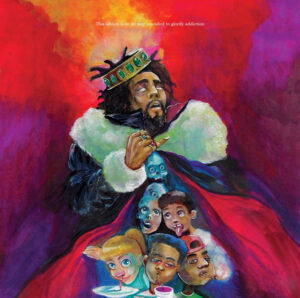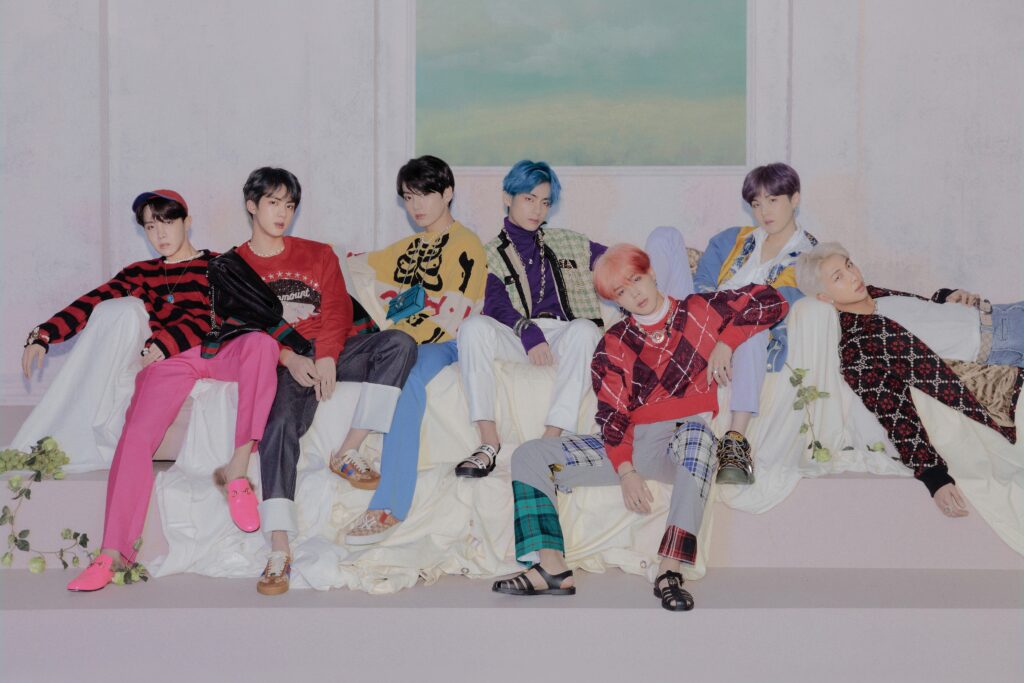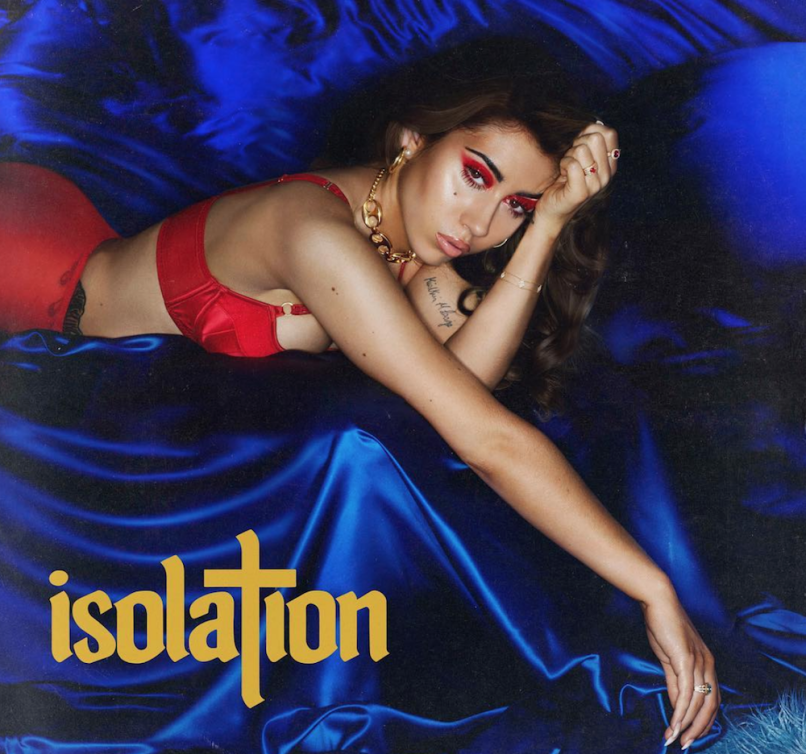Album Review: KOD by J. Cole
Written by Christina Dias on April 21, 2018

KOD Art by Kamau Haroon
Between doing his own production and having extremely successful albums with little to no features, J. Cole‘s name basically speaks for itself at this point. After releasing the album art by Kamau Haroon or “Sixmau” for KOD, what would be his fifth studio album, earlier this week, he got everyone talking. While some people view the art as provocative and original, others have described the art as cheesy. While I am a huge J. Cole fan, my objective opinion of the art was that the concept seemed played out. Addiction has been talked about a lot in rap and I questioned if J. Cole would be able to say anything new. Artistically, it looks cool, but I was not super jazzed for the album.
With that being said, once I actually listened to the album, I have to say that I changed my mind. In his true form, J. Cole brings new commentary and light to the problems of addiction. He has gained accolades for his political commentary and willingness to use his platform to incite change (see “High for Hours”).
Before the release, J. Cole tweeted that KOD has three meanings: “Kids on Drugs”, “King Overdosed”, and “Kill Our Demons.”
On the first listen-through, I was conflicted. While I really liked some of the tracks including “The Cut Off” and “Kevin’s Heart”, some of the tracks like “Motiv8” and “Photograph” felt unauthentic and cheap for what I know J. Cole can do. Objectively, the songs lack the quality of production and the lyrical strength I expect from J. Cole. The tracks are driven by high-hat beats and verses centered on money and girls. Although only peppered throughout the beginning half of the album, they feel like songs I have definitely heard from one of the “lil” rappers. While I am all for an artist trying something new and diversifying, these tracks are below J. Cole and don’t really match who he has portrayed himself to be musically. They lack originality in concept and seem to not fit in the album at first glance.
However, there are many tracks that are totally representative of J. Cole’s musical persona and bring real strength to the album. “Brackets,” with its cool motif and jazz roots, really caught my attention. The track presents a commentary on frustrations with the socioeconomic division of our society and starts to get into the theme of addiction suggested by the album art. While I usually skip over interludes after first listening to an album, “Once an Addict” was one of my favorite tracks on the album. The track is not what you think of when you think “interlude.” Despite muted instrumentals, it is strong as ever with its lyricism. J. Cole discusses how escapism through addiction actually takes away the freedom of the people around the addict.
Finishing out the album with “Friends (feat. kiLL edward)” and “Window Pain (Outro),” J. Cole continues on his streak of characteristic, jazz-inspired beats and the addiction of the people who surround him. On “Friends”, he calls out the tendency of people to blame addiction on things that happened to them when they were kids. Albeit a laid back track musically, I think it is the most provocative lyrically. For reference, kiLL edward is the only person featured on the album (he is featured twice), but his vocals are amazing and really contribute to the album. Vocally, he definitely reminds me of an up and coming D.R.A.M.. As a sort of juxtaposition to “Friends”, “Window Pain” speaks on unfairness. J. Cole exemplifies his encounter with a little girl who watches her cousin getting shot. Although he just called out his friends who blame their addiction on childhood experiences, J. Cole exposes the cyclic nature of addiction and how unfair it is to act for only yourself when your actions have an impact on other people.
The last track on the album, although labelled as an intro for “The Fall Off” (maybe his next project to look forward to), pulls the whole album together for me. “1985” is a discussion of the tendencies of the rap world today and how influential a rapper truly is. J. Cole calls out the use of “trap drums” which made me laugh because he definitely had some of what he is talking about on the earlier tracks of this very album. And then, it clicked. Those tracks were almost a mockery of the simplistic rap (lyrically and musically) that is being produced today. J. Cole wants rappers to recognize the influence they hold over their listeners, just like the influence the addicts have over their family and friends. Hip-hop has the potential to make a change, but rappers have to use their platform to do so.
Overall, I applaud J. Cole on this album. While it wasn’t perfect, the message and layers of the album were exceptionally executed and J. Cole provided the world with more of his head-turning production and musicality.
I give KOD an 8.6 out of 10.





